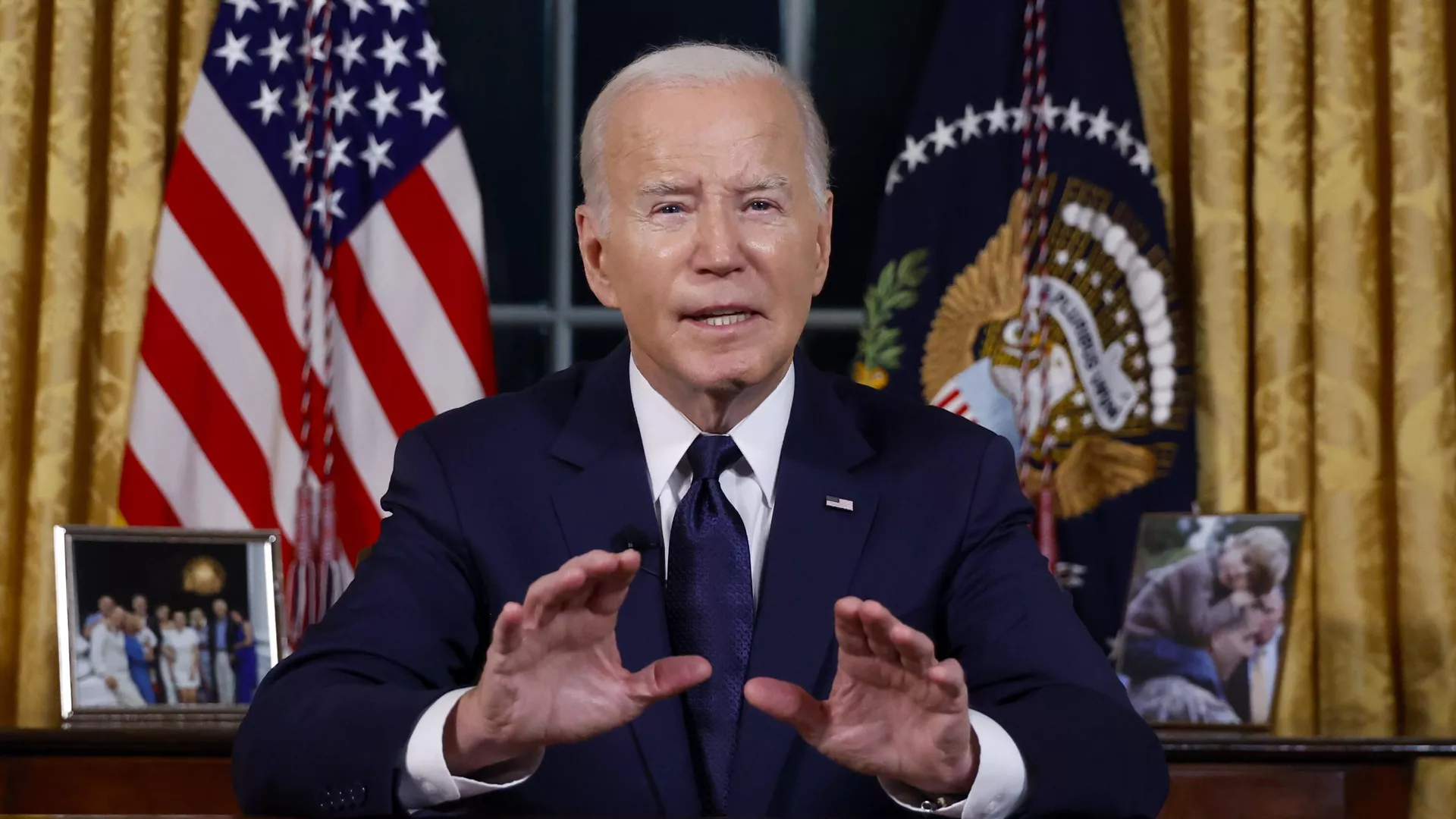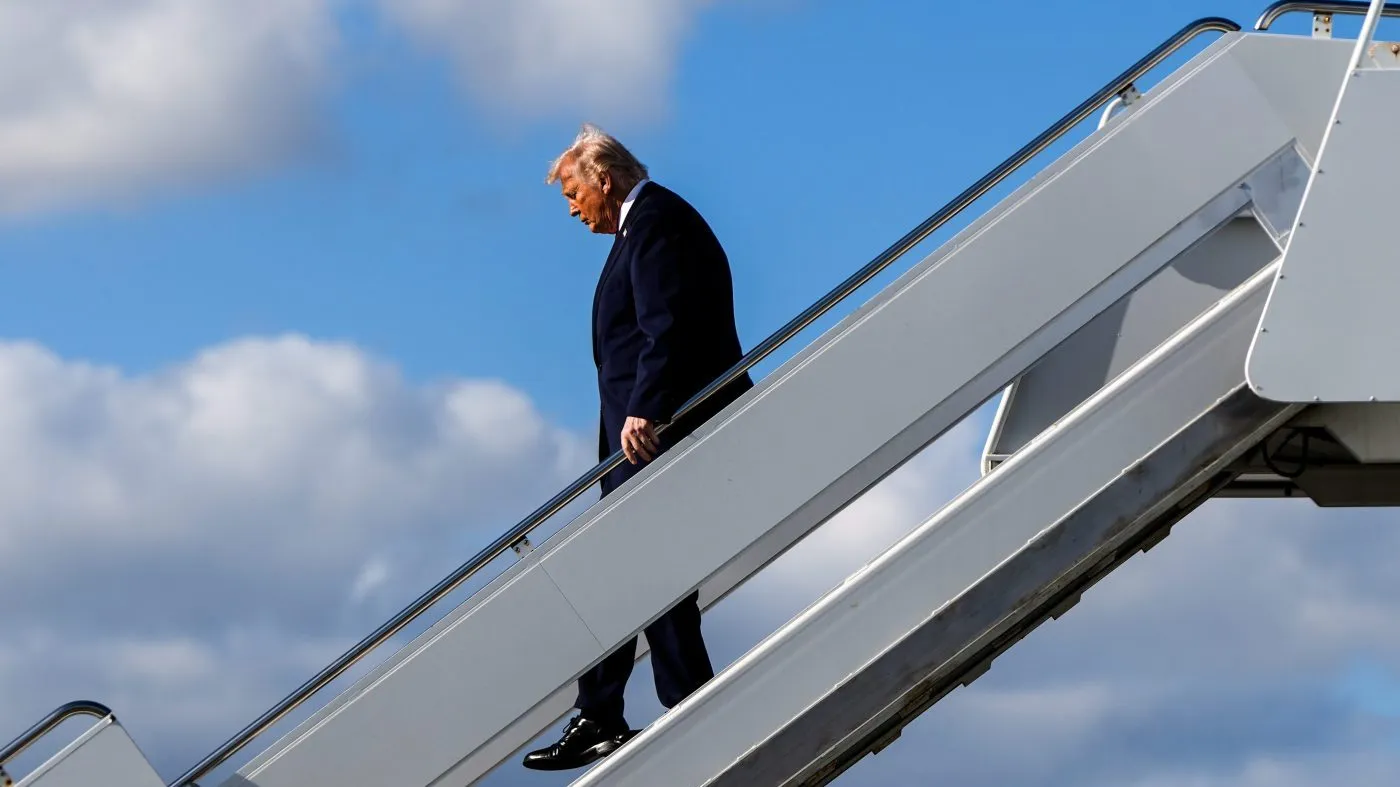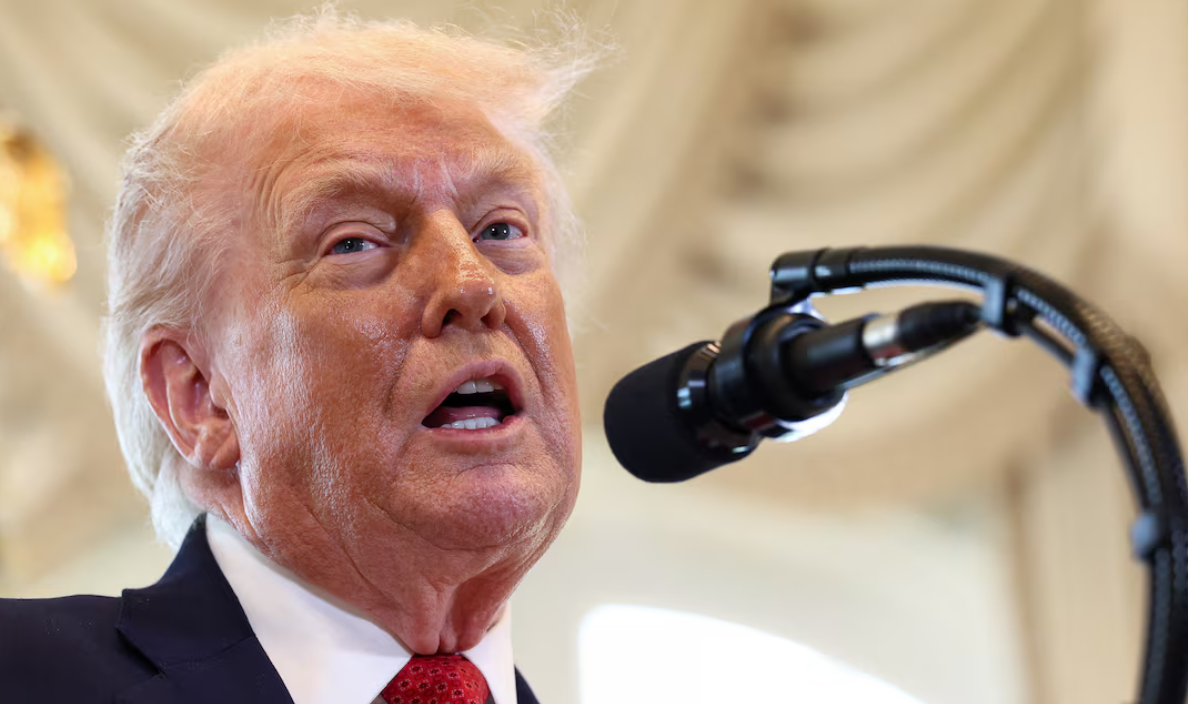The US is going further into the red with as it arms its client states for a series of conflicts. Sergio Rossi, professor of macroeconomics and monetary economics at the University of Fribourg, Switzerland, said the strategies to avoid a default would only prove to be a “time-bomb.”
US President Joe Biden’s appeal for cash to arm Ukraine and Israel could meet resistance from Congress thanks to the runaway federal budget.
Treasury department figures released late last week showed the government deficit had hit almost £1.7 trillion, up from £1.37 trillion a year earlier, a 23 percent increase in the public debt — although lower than the $2.78 trillion left by the COVID-19 pandemic in 2021.
The news was worse than it sounded however. The 2022 deficit included the budget for Biden’s student loan repayment program, money that was never spent as the Supreme Court struck it down. The treasury then claimed those unspent public funds as a “saving” in 2023 — meaning the true deficit doubled from $1 trillion in 2022 to $2 trillion this year.
That news came a day before Biden asked Congress for a $106 billion emergency foreign military aid budget. The lion’s share, $61.4 billion, is earmarked for Washington’s proxy conflict with Russia in Ukraine, while another $14.3 billion is to arm Israel for its latest attempt to destroy the Hamas movement in the besieged Gaza Strip.
That request dwarfs the $77 billion in arms and cash gifted to the Kiev regime since the start of Russia’s de-Nazification operation in February 2022.
Economist Sergio Rossi told Sputnik that the mounting deficit would make it harder for Biden to persuade Congress to approve his $100 billion budget request for more arms to Ukraine and Israel “in light of the problematic economic situation and outlook for the US stakeholders, namely, households, firms, and a variety of financial institutions.”
“Usually, when the domestic economic situation worsens, these stakeholders and their political supporters reduce the volume of foreign aid, to focus on supporting their own national economy first of all,” Rossi said.
He said the funding the conflict in Ukraine — while preparing for a Pacific showdown with China over Taiwan — had already put too much strain on Washington’s finances before the Palestinian Hamas movement launched a surprise attack into southern Israel.
“The US government cannot continue financing two military conflicts, particularly if the latter will continue without any foreseeable peaceful agreement before long,” Rossi stressed. “There are already signs that the political consensus for such a financial support is diminishing across the US economy, notably where both the labour and the product markets are in a difficult situation for a number of middle-class workers and several small or medium-sized firms.”
The state of the US economy was “worrying,” he said, and the outlook for the next two years was “even worse,” thanks to “global macroeconomic issues related to different geopolitical problems.”
The “mushroom” of ensuing inflation has badly affected consumer purchasing power. “As a result, firms’ investment is discouraged, both because of this inflationary pressure and the Fed’s repeated increases in the policy rates of interest.”
He pointed out that Congress could simply raise the public debt ceiling and the US Federal Reserve could buy up government bonds as an effective loan.




